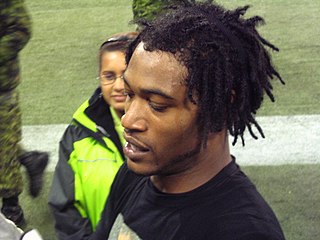A Quote by Patrick Lencioni
Achieving vulnerability-based trust (where team members have overcome their need for invulnerability) is difficult because in the course of career advancement and education, most successful people learn to be competitive with their peers, and protective of their reputations. It is a challenge for them to turn those instincts off for the good of the team, but that is exactly what is required.
Quote Topics
Related Quotes
If we write our laws and design them around the most privileged members of society, i.e., billionaire football team owner, then we forget about the people who don't have the same resources to make an appeal, to fight a wrongful accusation. Those tend to be members of the LGBT community and people of color because those are the people who tend to engage in the work of reappropriation to subvert discrimination. And yet those are the same ones being denied, based on their own identities.
Teams use trust as currency. If it is in short supply, then the team is poor. If trust abounds, the members of the team have purchase power with each other to access each others’ gifts, talents, energy, creativity, and love. The development of trust then becomes a significant leadership strategy. Trust creates the load limits on the relationship bridges among team members
One of the most awesome things about sports, particularly team sports, is that everything you need to do to be successful on the playing field carries over directly into life. In a team sport you have to learn how to work together, to set goals, and then work toward those goals in a productive way. You learn to be responsible and you learn how to not only depend on others, but also be independent so you can support others.



































